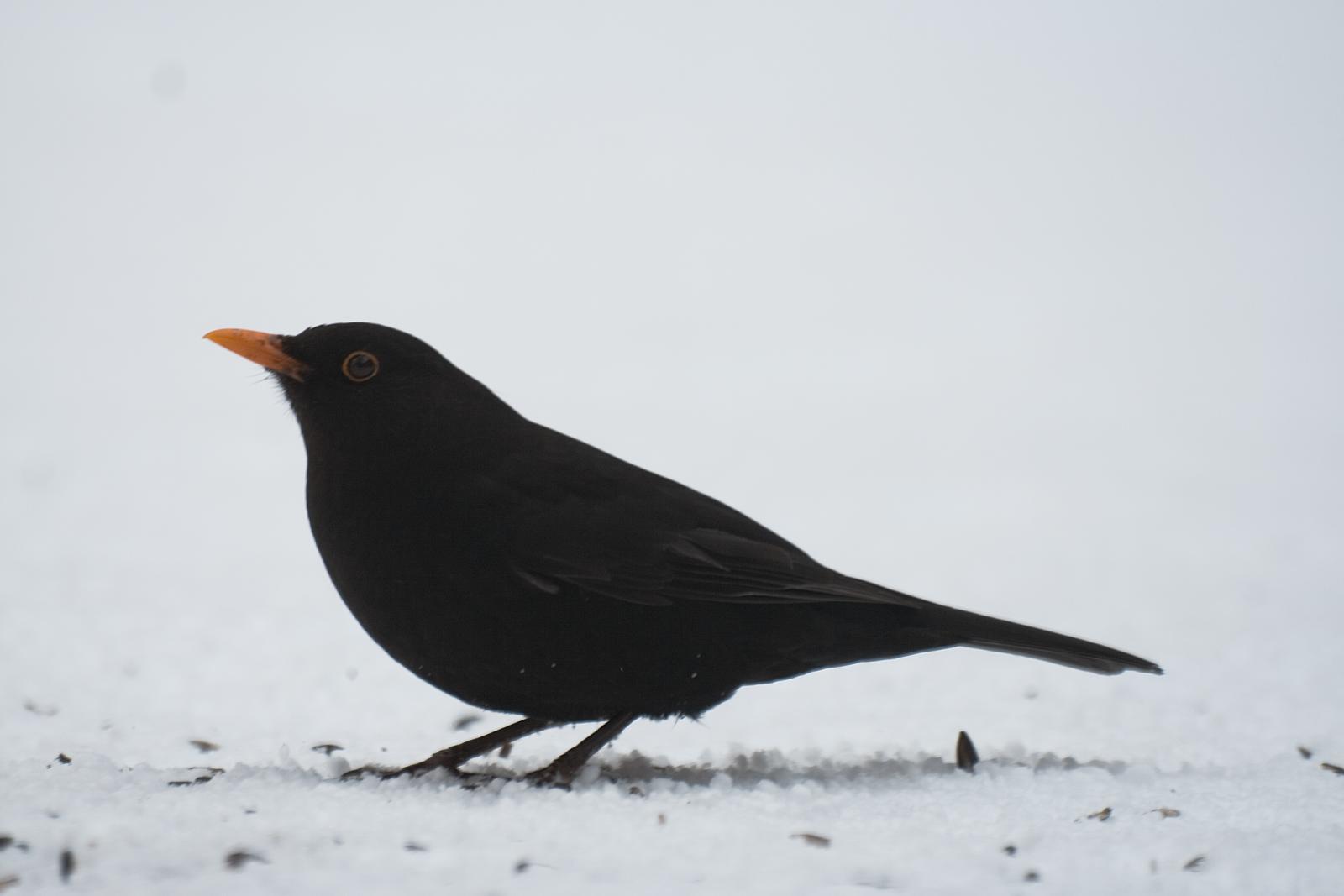This film I produced and narrated for Nature tells the story of how a bloody beginning gave rise to the life-saving medication, warfarin. This anticoagulant is one of the worlds most widely prescribed drugs and its history is littered with the bodies of sick cows and poisoned rats...
Video: Playing with the Panasonic GH4
I got a new camera - come look what I done with it!
Read MoreVideo: Why science is NOT 'Just a Theory'
Have you ever heard ‘evolution’ dismissed as ‘just a theory’? Is a scientific theory no different to the theory that Elvis is still alive? Jim Al-Khalili puts the record straight.
Read MoreVideo: The Magic of Consciousness
Professor Nicholas Humphrey explores the scientific significance and problematic nature of consciousness.
Read MoreVideo: This Film Sucks! - The Science of Leeches
Tim Cockerill returns to take a look at some leeches in a short piece produced for YouTube's Geek Week back in August. If you're a bit squeamish this probably isn't for you! [youtube=http://www.youtube.com/watch?v=jerqq06uxAo&w=640&h=360]
We couldn't really make a video about leeches without showing off their impressive feeding apparatus, a Y-shaped jaw packing in roughly 300 teeth! This was a tricky shot to achieve, we had to persuade the leech to attach to a glass plate, holding it in position by hand, allowing us to shoot from below with a macro lens. It was a great sight to behold once we finally got it and it certainly helps bring something to the film that you hopefully wont have seen elsewhere.
We also had to get some footage of a leech feeding, so we set one loose on Tim's arm, shooting a time-lapse to demonstrate how much they can expand during the feeding. Once it had attached to feed, we were very much at the mercy of the Leech's hunger as we couldn't shoot the final shots until it had detached. As Tim mentions in the film, it's not a good idea to pull or burn leeches off as this may cause them to vomit their stomach contents back into the open wound - not a good idea if you don't know what the leech as been feeding on previously. The best course of action to take is to let detach when it's good and ready.
We also wanted to dispel a common myth about leeches using anaesthetics to dull the pain the sensation of pain whilst feeding - as Tim reports there's little scientific evidence to support this and he certainly reports to feel a stinging sensation as the leech feeds on him.
After about 3 hours the leech was finally full and very happily detached from Tim's arm - during 'the feeding' the leech utilises an anti-coagulant (called hirudin) and as you can see in the film this prevents the blood from clotting, causing the wound to bleed profusely four a couple of hours after it's detached!
Video: When Fish Stopped Being So Lazy and Made it Onto Land
Recent video shot and produced for the Ri Channel, featuring Professor Neil Shubin who discovered the remarkably well preserved fossil of the transitional organism Tiktaalik roseae.
Read MoreChris Watson on Noise
Interview
Last year I interviewed sound recordist Chris Watson on the subject of noise for a piece exploring the use of birdsong at Alder Hey Children's Hospital in Liverpool.
Chris is one of the worlds leading sound recordists and is well known for his work with the BBC Natural History Unit, including the recent Frozen Planet series.
There was a lot of interesting discussion during this interview about the nature of noise pollution and the considerable threat it poses to our quality of life. Worrying still, it appears that our noisy modern world is drowning out the natural soundscape and interfering with species of wildlife that rely on sound for communication.
What seems to be most alarming is that we're largely ignoring this problem - our world certainly isn't getting any quieter - and with more of us living in urbanised environments, noise pollution is fast becoming a significant health problem.
As only a portion of this interview was included within the Alder Hey piece, I thought it might be interesting to share some of the additional material. The interview was recorded at FACT in Liverpool, back in April of last year and explores some of the causes and concerns towards noise in the modern world.
http://soundcloud.com/eprosser/chris-watson-on-noise
Additional info
Further reading on the health effects of noise: a WHO report on the burden of disease from environmental noise
Nature on BBC Radio 4 is recommended listening if you want to hear more of Chris and his stunning wildlife recordings.
Touch Music also releases sound work by Chris, you can browse his collection here.
Birdsong: An Escape From The Noise
 I was interested to read today about a new research project being undertaken, to investigate the psychological impacts of exposure to birdsong. In particular the project will look at how birdsong affects our psychological state, including its effect on mood, attention and sense of creativity.
I was interested to read today about a new research project being undertaken, to investigate the psychological impacts of exposure to birdsong. In particular the project will look at how birdsong affects our psychological state, including its effect on mood, attention and sense of creativity.
The research is being conducted as a joint collaboration between the University of Surrey, National Trust and Surrey Wildlife Trust. Researcher Eleanor Ratcliffe, highlighted that there was a real a lack of evidence on the effects of birdsong, stating:
"A great deal of anecdotal evidence suggests that we respond positively to birdsong. However, currently there is a lack of scientific research on the psychological effects of listening to birds."
You can find out more about the project here.
For me the sound of birdsong offers predominantly positive associations. Living in London, I’m now surrounded by a largely synthetic soundscape, which is strongly connected to the stresses and frustrations of city life (the daily commute, working long hours and a persistent sense of fatigue).
Living amongst this hubbub has unsurprisingly increased the value I attribute to natural soundscapes. Standing in binary opposition to the din of urban living, natural soundscapes offer potential for escape, not just from noise, but from all the negative associations paired with it.
It may be that natural sounds can help us escape from a chaotic lifestyle or at least provide a restorative effect from stress. Understanding the psychological impacts of birdsong will allow us to better understand how we respond to such sounds and perhaps learn more about this relationship. If birdsong really does improve our state of mind and / or sense of wellbeing then it could have real potential in it’s application as a therapeutic tool.
Birdsong as a therapeutic tool?
Back in April / May – I produced a radio piece which looked at the use of Birdsong in the healthcare environment. Alder Hey Children’s Hospital in Liverpool has been experimenting with the use of birdsong to improve the experiences of it’s young patients.
Installed in the central corridor is a sound installation playing the beautiful birdsong recordings made by Chris Watson and Alder Hey patients. These recordings are also used with patients during traumatic and painful procedures, often as a way of calming them down or taking their minds off the situation.
Speaking to the hospital’s Arts Coordinator Vicky Charnock, I found out that there was already tremendous anecdotal evidence in support of birdsong as a therapeutic tool. They were also interested in setting up some form of trial in which to test the potential therapeutic benefits of birdsong.
You can listen to and download the piece here:
http://soundcloud.com/eprosser/alder-heys-dawn-chorus
Bury St Edmunds
An experimental sound piece which takes recordings made during a vist to Bury St Edmunds and weaves them into a surreal narrative, morphing between lakeside walks, market criers, street performers and birdsong. Recordings made using a Zoom H4n, edited and assembled on Ableton Live.

Headphones recommended.
[soundcloud width="100%" height="81" params="" url="http://api.soundcloud.com/tracks/27315140"]
Bedtime stories for scientists
 I remember listening to audiobooks as a child and there were years where I wouldn't sleep unless I had a tape playing in the background. To a child, silence can be pretty ominous and I suppose there is something comforting in having 'someone else' in the room with you, narrating a story as you fall asleep. Even now, when all I seem to crave is silence, there is still something comforting in putting on a pair of headphones and escaping into a world led by the voice of another.
I remember listening to audiobooks as a child and there were years where I wouldn't sleep unless I had a tape playing in the background. To a child, silence can be pretty ominous and I suppose there is something comforting in having 'someone else' in the room with you, narrating a story as you fall asleep. Even now, when all I seem to crave is silence, there is still something comforting in putting on a pair of headphones and escaping into a world led by the voice of another.
A while back I recorded Lizzie Crouch reading a series of extracts from popular science books - intended as little audio 'bedtime stories' for scientists. At first we thought about adding in additional sound to enhance the recordings, but upon reflection it was clear that they worked a lot better on their own. There are thousands of great audiobooks out there, but I suppose very few cover popular science - so here's an attempt to bring you just that.
Lizzie is going to be posting a new one each week, you can hear the first one below (an extract from 'Trilobite!' by Richard Fortey), but listen to the rest over at her blog.
[soundcloud url="http://api.soundcloud.com/tracks/25348416"]
The Joy of Birds
Finally figured out how to embedd this video... This is a short video I produced last month with Nisha Ligon, Tom Welch and Camilla Ruz for the Guardian website. It features BBC wildlife presenter Kate Humble and Martin McGill who were promoting their new book 'Watching Waterbirds with Kate Humble' at the London Wetlands Centre.
We got really lucky with the weather. Turning up at Hammersmith station in the morning we were greeted with a torrential downpour - not ideal for shooting wildlife outside. Thankfully the rain subsided just as we arrived at the Wetlands Centre and we were granted with an afternoon's worth of sunshine to walk round the site and capture some of the wildlife on camera.
Check out the video below to have a look for yourself!
Watch here: http://www.guardian.co.uk/environment/video/2011/aug/31/kate-humble-birdwatching-london-wetland-video
... or below if it works:
[vodpod id=Video.15415961&w=425&h=350&fv=playerID%3D26396137001%26amp%3B%40videoPlayer%3D1134961439001%26amp%3Bdomain%3Dembed%26amp%3BautoStart%3Dfalse%26amp%3BadServerURL%3Dhttp%253A%252F%252Foas.guardian.co.uk%252F2%252Fwww.guardian.co.uk%252Fenvironment%252Fvideo%252F2011%252Faug%252F31%252Fkate-humble-birdwatching-london-wetland-video%252Foas.html%252F1430365755%2540Top%2CPosition1%2Cx40%2CMiddle1%2Cx31%252Cx40%2521x40%253Fk%253Denvironment%2526k%253Dbirds%2526k%253Dlondon%2526k%253Dwildlife%2526k%253Dtravel%2526k%253Dbirdwatching%2526cf%253Dethical%252Bliving%2526pid%253D%2526ct%253Dvideo%2526pt%253Dvideo%2526videoId%253D1134961439001%26amp%3Bseamlesstabbing%3Dfalse%26amp%3Ballowfullscreen%3D]
The London Wetlands Centre is an unusual oasis of wildlife and greenery which is situated surprisingly within the city confines near Hammersmith. It provides people with a great chance to break free from the usual urban surroundings and take in some of the natural scenery usually reserved to those living outside the city limits.
GO SEE.








